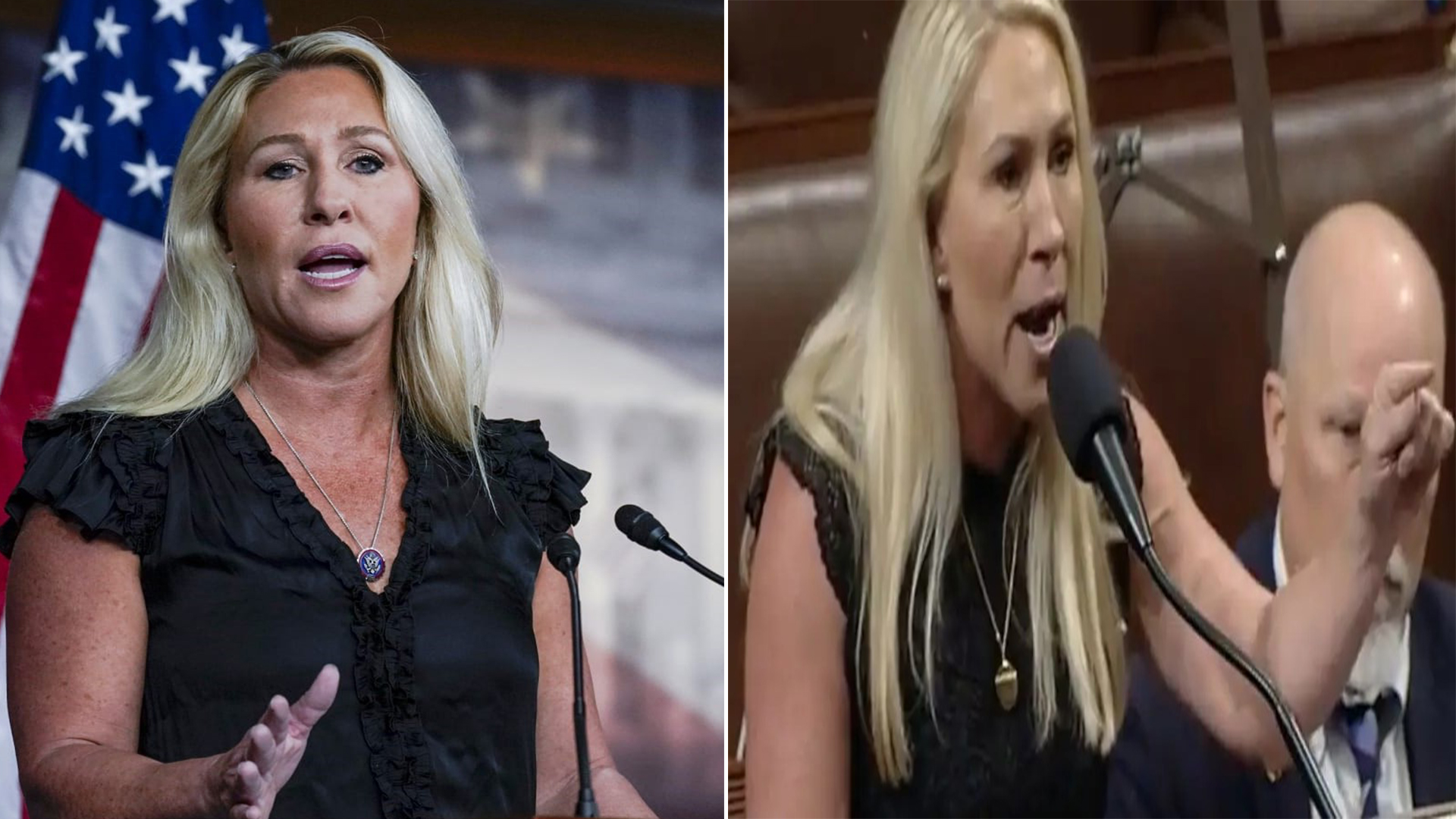In an alternate reality that mirrors our own in some respects yet diverges significantly in others, Representative Marjorie Greene (R-GA) found herself embroiled in a heated exchange with a reporter from The Times of London during a gathering reminiscent of the National Unity Summit. This fictional event brought together key figures from various ideological backgrounds to discuss themes of unity and division in a society grappling with profound political polarization.
Jo Crawford, representing The Times of London in this alternate reality, approached Greene with questions regarding hypothetical remarks attributed to JD Vance (R-OH). These remarks suggested a speculative scenario where the United Kingdom might adopt Islamist policies under a fictional Labour government. Greene, known for her outspoken and confrontational style, swiftly redirected the conversation towards what she perceived as the media’s role in exacerbating societal divisions.
“Let’s address the narratives propagated by our opposition,” Greene asserted, her voice firm yet measured. She pivoted to critique what she viewed as the media’s penchant for distorting facts and perpetuating falsehoods, particularly in ways that she claimed demonized political figures and inflamed public discourse. “We, like you, are everyday people with families and concerns,” she emphasized, attempting to humanize herself and underscore her stake in the issues at hand.
The fictional exchange underscored broader themes of media accountability and its impact on national cohesion in this parallel universe. Greene accused the journalist of contributing to societal discord through biased reporting, alleging that such practices fueled mistrust and polarization among the populace. “Your actions sow division,” Greene charged, pointing a finger at the reporter to emphasize her point about the consequences of media narratives on public perception and political dynamics.
The intensity of the exchange reached its peak as Greene abruptly ended the interview, symbolizing a sharp conclusion to a contentious interaction. Her dismissal of the journalist echoed a sentiment of frustration with what she perceived as unfair media practices, encapsulating a fictionalized clash emblematic of the tensions between political figures and the press in this imagined world.
Meanwhile, in this alternate narrative, former President Trump took to a speculative social media platform to endorse JD Vance as a hypothetical vice presidential candidate. Trump’s endorsement, fictional though it may be, highlighted Vance’s evolution from a vocal critic during Trump’s initial presidential campaign to a strategic ally seeking his endorsement in a subsequent Senate bid. This fictional journey reflected themes of political realignment and personal transformation in a landscape where political allegiances shifted and recalibrated in pursuit of power and influence.
Vance’s fictional apology for past criticisms of Trump resonated with a broader theme of redemption and second chances in the volatile arena of fictional politics. His public reevaluation of past statements underscored the fluidity of political ideologies and the strategic recalibrations made by ambitious figures navigating the complexities of fictional political landscapes.
In conclusion, the fictionalized confrontation between Greene and the journalist, set against the backdrop of a speculative political convention, delved into themes of media influence, political rhetoric, and personal evolution. The narrative’s expansion into fictional characters and events served not only to provoke thought on real-world issues of media ethics and political identity but also invited reflection on the intricacies of contemporary political discourse and the enduring quest for unity amidst ideological diversity.
